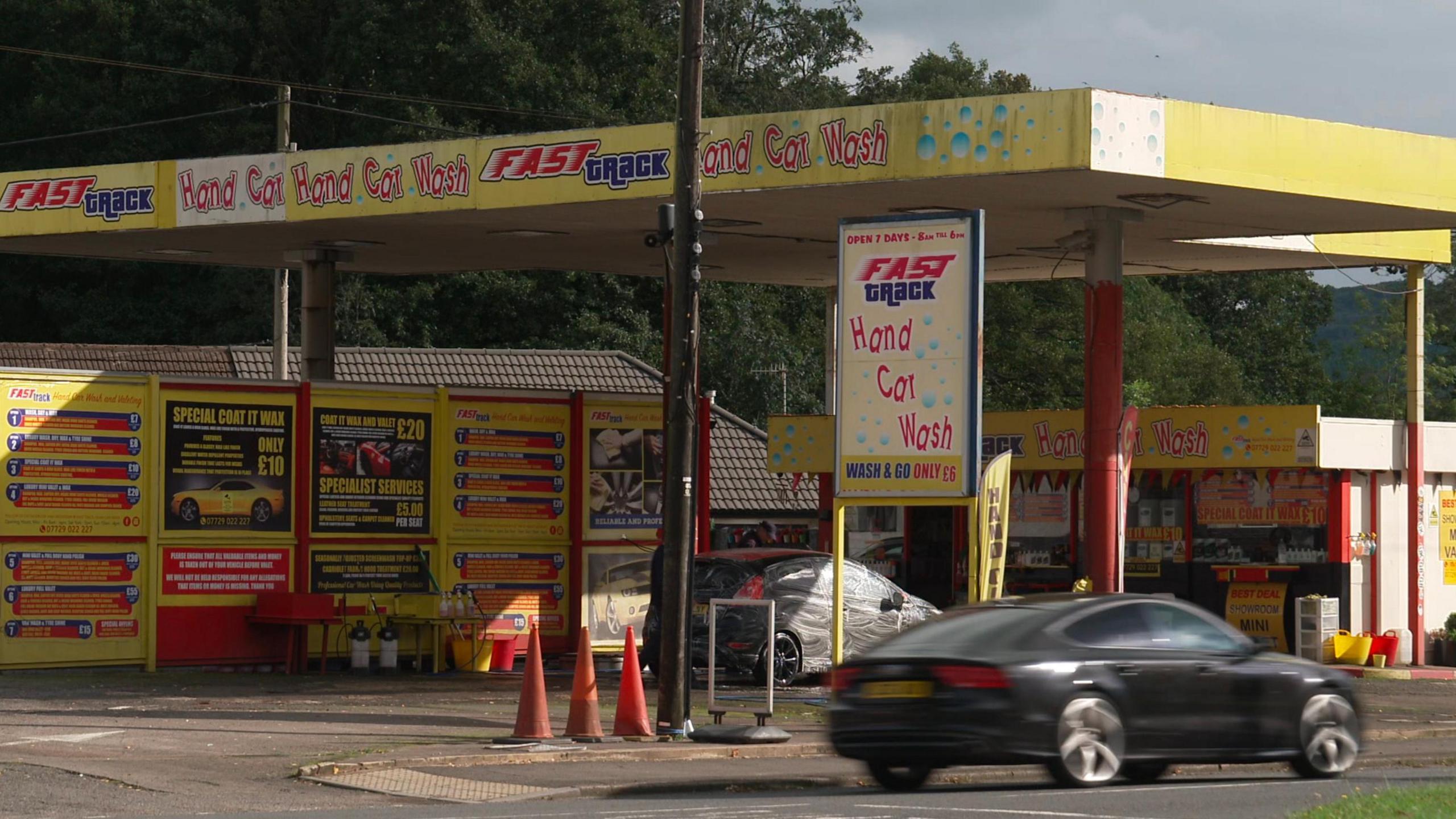People smuggling ring run from car wash - court

The court heard that the operation was organised from the Fast Track Hand Car Wash in Caerphilly
- Published
A smuggling ring that brought hundreds of people through Europe from the Middle East was operated by two men from a car wash, a court has heard.
Dilshad Shamo, 41, and Ali Khdir, 40, are accused of unlawfully moving people from Iraq, Iran and Syria to Europe in boats, lorries and cars.
The court heard the operation, between September 2022 and April 2023, was organised from the Fast Track Hand Car Wash in Caerphilly, owned and operated by the pair.
Mr Shamo, born in Iraq, and Mr Khdir, originally from Iran, but whose addresses were previously given as Caerphilly, both deny five counts of conspiring to breach migration laws in Italy, Romania, Croatia and Germany to bring people into European Union (EU) countries.
- Published6 November
- Published4 November 2021
Sarah Gaunt, for the prosecution, told Cardiff Crown Court that the jury would be shown evidence from WhatsApp, including voice messages between the defendants and people based in Iraq, Turkey and Europe attempting to smuggle people across Europe.
Most of those trafficked came from Iraq, Iran and Syria, and were charged money "equating to several thousands of pounds", she said.
Much of the money was transferred using the hawala system, a traditional way of transferring money through brokers, with smaller amounts sent via Western Union.
Ms Gaunt said the prosecution’s case would focus on a people smuggling operation from Caerphilly that took in Italy, Romania, Germany and Croatia.
"These four countries were among the European countries that migrants were trafficked to, or through, by these defendants," she said.
Ali Khdir (left) and Dilshad Shamo, both seen with prison officers, are accused of leading an operation to smuggle people through Europe
She added that police carried out surveillance on the defendants and recorded their movements, including placing "listening devices in their cars and the car wash in Caerphilly".
"You will hear various conversations recorded of these defendants talking whilst they were in their motor vehicles and seem to be the only occupants,” she said, adding that many of the conversations were in Kurdish and had been translated for the jury.
She described four routes the defendants allegedly used to traffic people through Europe:
Migrants use legitimate documents to enter Turkey before being moved across the border, sometimes onboard a boat or ship
Migrants get Belarusian or Moldovan tourist visas, and are then transported by car or lorry to Germany or Romania
Migrants are taken by lorry, by sea or road from Turkey to Italy or Germany
Iraqi, Iranian and Syrian migrants travel via Bosnia, using cars or taxis to cross into Croatia and Slovenia, and often on to Italy
The trial continues.